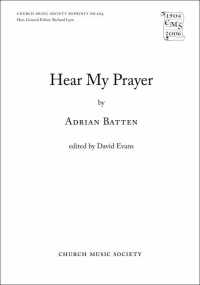Full Description
This book is about the current state of research in online assessment. The growth of this field is set to accelerate exponentially with emerging opportunities for automatic data collection and analysis. Yet, the future of online assessment faces major challenges including, perhaps most importantly, the extent to which assessments, when enabled by technology, can serve simultaneously the needs of learners, teachers and those of the enterprise of education. This book details, specifically, the multiple ways in which online assessment can be utilized, such as:
Providing virtual coaching or tutoring
Offering appropriate scaffolding
Allowing analysis of student decision-making
Providing the mechanism for students to review and comment on each others digital creations
Creating a space for online discussion
Providing expert coaching for modeling and animation work
With the increased availability of vast and highly varied amounts of data from learners, teachers, learning environments, and administrative systems within educational settings, further opportunities arise for advancing pedagogical assessment practice (Ifenthaler et al., 2018).
This book fully details these opportunities, as well as privileges and constraints of analytics-enhanced assessment, harnessing formative as well as summative data from learners and their contexts in order to facilitate learning processes in near real-time and help decisionmakers to improve learning environments.
Contents
Part 1. Perspectives on Behavior, Engagement, and Interaction.- 1. Foundations of Assessment Analytics (Muhittin Sahin, Dirk Ifenthaler).- 2. Uncovering Students' Temporal Quiz-Taking Behavior Patterns using Sequence Analysis (Gökhan Akçapınar, Hale Ilgaz, Alper Bayazıt, Denizer Yıldırım).- 3. Assessment Analytics for Digital Assessments - Identifying Modeling and Interpreting Behavioral Engagement (Okan Bulut, Seyma Nur, Guher Gorgun).- 4. Guiding Students towards Successful Assessments using Learning Analytics - from Behavioral Data to Formative Feedback (Michael Hanses, Lars van Rijn, Heike Karolyi, Claudia de Witt).- 5. Transforming Tertiary Education: the Role of Learning Analytics in Improving Students' Success (Ursina E. Raemy, Stefan J. Troche, Kinga Sipos, Boris Mayer, André Klostermann, Danièle A. Gubler, Natalie Borter).- 6. Group Cohesion and Performance in Computer-Supported Collaborative Learning (Jan-Bennet Voltmer, Laura Froehlich, Natalia Reich-Stiebert, Jennifer Raimann, Stefan Stürmer).- Part 2. Perspectives on Analytics, Design, and Indicators.- 7. A Plurality of Measures: from Scale to Modality (Charles Lang, Lalitha Vasudevan, Rhea Jaffer).- 8. Framework of Assessment Design based on Evidence Centered Design for Assessment Analytics (Cennet Terzi Müftüoğlu, Muhittin Sahin).- 9. Design of Assessment Task Analytics Dashboard Based on Elo Rating in E-Assessment (Sinan Keskin, Furkan Aydın, Halil Yurdugül).- 10. Student-Facing Assessment Analytics Dashboards based on Rasch Measurement Theory (Furkan Aydın, Fatma Bayrak, Halil Yurdugül).- 11. Analysis of Process Data to Advance Computer-Based Assessments in Multilingual Contexts (Martin Hlosta, Jessica M. E. Herzing, Simon Seiler, Sukanya Nath, Florian Keller Zai, Per Bergamin, Andrea B. Erzinger).- 12. Hierarchical Clustering In Profiling University Students for Online Teaching and Learning (Serhat E. Akhanlı, F. Önay Koçoğlu, Eralp Doğu, Müge Adnan).- 13. Managing a Large Talent Pool using Assessment Analytics within the Context of the National Internship Program (Salim Atay, Neşe Gülmez, Fatma Bayrak, Yüksel Büşra Çaylak).- 14. Assessment Analytics: Feedback, Feedup, Feedforward on Bayesian Network (Cennet Terzi Müftüoğlu, Ömer Oral, Halil Yurdugül).- 15. An Architecture for Formative Assessment Analytics of Multimodal Artifacts in E-Portfolios Supported by Artificial Intelligence (Fatima Maya, Karsten D. Wolf).- 16. Learning Analytics for Assessment and Gamification in Digital Storytelling (Andreea Molnar, Jose Garcia, Patty Kostkova).- 17. From Clicks to Constructs: an Examination of Validity Evidence of Game-Based Indicators Derived from Theory (Gregory K. W. K. Chung, Tianying Feng).- 18. Leveraging Online Formative Assessments within the Evolving Landscape of Artificial Intelligence in Education (Caitlin Riegel).- 19. Towards Fair and Diversity Appropriate E-Assessments (Nikolai Zinke, Sina Lenski, Annabell Brocker, Martin Merkt, Kirsten Gropengießer, Stefan Stürmer, Hannes Schröter).- 20. Future Directions of Assessment Analytics (Muhittin Sahin, Dirk Ifenthaler).







